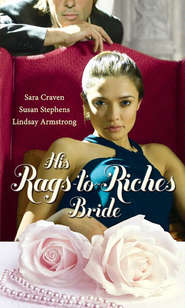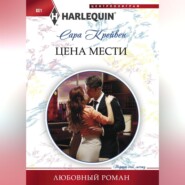По всем вопросам обращайтесь на: info@litportal.ru
(©) 2003-2024.
✖
Moon Of Aphrodite
Автор
Год написания книги
2018
Настройки чтения
Размер шрифта
Высота строк
Поля
Helen said, ‘Yes,’ almost absently. Her hand reached for the letter, screwing it into a ball. Her eyes met her father’s in defiance and appeal. ‘I may look like her, Dad, but I haven’t her forgiving nature. He may be a wealthy and powerful man, but he can’t come and go in our lives, just as he pleases.’
‘Are you prepared to tell him so?’ Hugo’s voice was gentle and without censure.
‘I don’t intend to reply at all.’ She tossed the ball of paper into the waste bin. ‘Problem disposed of. Now let’s change to a happier topic. Did you get the message from Paul that I left for you last night?’
‘Yes.’ Her father smiled. ‘And I’ve telephoned him. He’s been working really hard, and the exhibition won’t have to be postponed after all.’
‘It never does have to be postponed,’ Helen smiled in response. ‘It’s just eleventh-hour panic on his part. God knows why. Or you do, perhaps?’
‘I have an idea,’ said Hugo. ‘Though I must admit no one ever clamoured to put on an exhibition of my work.’
Helen gave him an affectionate smile before rising to busy herself clearing the breakfast things from the table. Her father’s work, as far as she could judge, had been competent but not outstanding, but he possessed the eye of a judge, a connoisseur where other people’s painting was concerned. He was also a realistic man, and had recognised quite early in his career that he would probably never earn enough from painting alone to support himself, plus a wife and child. A legacy from an uncle had enabled him to buy a share in a gallery near the West End. The gallery wasn’t doing too well, but Hugo Brandon had changed all that, and within five years he had been able to buy his partner out and replace the gallery’s rather pretentious name with the single word ‘Brandon’. He made a name for himself on both sides of the Atlantic and in Europe as a man who could spot a real talent in the making. And Helen had never asked anything better than to join him in his work.
But sometimes she wondered if he ever regretted that it was not his own signature that his customers sought on their canvases. Was he happy, she thought, was he fulfilled, or had he settled for second best? She hoped not, but doubted whether she would ever know the truth.
One thing she had never doubted was his love for her, and for his late wife. But again she wondered if he would have worked quite so hard to make the gallery a success financially as well as artistically if he had not married a rich man’s daughter. Perhaps he had been determined that Maria would never count the cost of all she had given up in order to become his wife.
God, she thought ruefully, as she stacked dishes in the drying rack, everything’s so complicated. Except for my life, she amended hastily.
Helen had enjoyed the year since she had left school. She liked the fact that their flat was sited immediately over the gallery, as well as the work she did there. She was beginning to be a good saleswoman, and learning about art as well, which pleased her. And without being conceited, she was aware that her own attractions—a slim body with rounded breasts and hips, an oval face with high cheekbones, and clear hazel eyes fringed by lashes shades darker than her honey-blonde hair—contributed to her success.
Her mother had been blonde too, but her eyes had been brown like pansies, and full of laughter.
Helen’s eyes darkened too, when she was angry, which was really the only form of passion she had ever encountered. She had never lacked for men to take her out, but her romances so far had been very tentative affairs with little commitment on either side.
Her thoughts for a moment went to Christopher who was taking her out that very evening. She liked him, she enjoyed his kisses even, but something warned her that that was all the involvement she wanted, although she was aware his own desire was for a much closer relationship.
Perhaps in time, she thought, almost absently, then caught at herself. What was she thinking of? Her mother had preached few moral lessons at her, perhaps because she guessed the morality her daughter would be subjected to would be a very different thing from her own sheltered girlhood in Greece, yet one thing she had stressed. Without love, there could not, should not be any giving. And Helen had to admit she could not imagine love blossoming from anything as lukewarm as her present feelings for Christopher. Like most of the other young men who had passed briefly through her life, he was a pleasant companion, but little more.
She sighed faintly. Perhaps this was why their passage was so fleeting. Maybe they turned to other girls for the warmth, the passion she denied them.
But it might also be that she had never yet met anyone who ‘turned her on’, she reminded herself. Perhaps one day she would meet a man, and know that he was the one for her just as her mother had done.
‘I loved him from the first moment that I saw him,’ Maria had told her once, her mouth curving in tender reminiscence. ‘He was sitting on the hillside above the village, painting the view, in the heat of the day without even a hat to protect him from the fierceness of the sun, and I said to him, “Why do you not sit in the shade? The sun will make you ill.” And he turned and smiled at me.’
The young artist had taken her advice, she went on, and from then on she had gone each afternoon to watch the progress of the painting.
‘One day I was late, so late, because Thia Irini had made me help with some sewing. When I got to the place, he was not painting at all, and when he saw me, he jumped up and said, “I was so afraid you weren’t coming and that I wouldn’t see you again.” And then I knew that he loved me also. But I had known first,’ Maria concluded with a look of smiling satisfaction.
How nice to have such certainty, Helen thought, particularly in view of what was to come later.
The news that Maria was to become betrothed to the son of a business acquaintance, a young man only a few years older than her seventeen-year-old self, had burst on the lovers like a bombshell.
Maria had protested to her father that she had never met the young man, but his attitude was inflexible. There would be plenty of opportunities for them to meet, he said. Of course, if they disliked each other, the marriage would not take place. But Maria knew there would be few grounds for dislike. Her father’s choice would not have fallen on someone unsuitable, and she knew that unless she acted fast, the most subtle but inexorable pressure would be exerted and she would find herself a married woman. She knew too that it would be pointless to plead that she had already fallen in love with Hugo Brandon. Her father would dismiss her plea as a young girl’s fancy, or more probably, become very angry.
To his credit, Hugo had not wanted a hole-and-corner affair; he had been quite prepared to face Michael Korialis and endure his wrath. But Maria knew her father, and how vengeful he could be, and she persuaded Hugo that the risk would be too great. Time, too, was growing short. A big party was being planned to celebrate her betrothal, and the hour was approaching when Maria would have to meet her intended husband for the first time.
‘I cannot see him. I cannot face him,’ she had sobbed to Hugo. ‘How can I greet another man, let him touch me, when it is you that I love?’
Two nights later she had left her father’s house for ever, leaving a note imploring his forgiveness. She had never heard another word from him as long as she lived.
Helen tried to imagine herself abandoning Hugo without a backward glance for Christopher, or any of the men who had occupied her attention, however briefly. It was a ridiculous thought, she decided scornfully.
And she was enjoying life. She liked her work, and there was very little to disturb her—with the exception of her grandfather’s letter, which had been disposed of, she thought with satisfaction.
A little of his own medicine, she told herself as she dried her hands, and hung up the tea towel before going down to the gallery to start her day’s work. And that’s the end of it.
Nor was there any premonition—any pricking of her thumbs—to warn her that it was only the beginning.
The gallery had the tired, slightly rumpled look it always had after the opening of an exhibition, especially a successful one as that day’s had been, Helen thought.
She moved about, a slim figure in her cream dress, straightening chairs, picking up the occasional cigarette end which had escaped an overflowing ashtray, and returning glasses to the trays which the catering firm would collect presently.
It had been a good day, she thought, staring round at the numerous red ‘sold’ stickers on the paintings, and pieces of sculpture on display. Paul Everard, who had stayed away from the gallery for his usual pre-exhibition nervous breakdown, would undergo an instant revival when he saw them, she told herself smilingly. He might even be persuaded to start painting again, if anyone could only convince him there was a permanent and enthusiastic demand for his work—which there was. She sighed a little. So many of the successful artists they handled seemed to suffer from these doubts—the failures, who came to Hugo demanding that their work be given notices, status, respect, seemed to have no such misgivings. And that, she supposed, was life.
She gave a final glance round as she prepared to depart, and frowned. One of the paintings was hanging a little askew, and that was a thing she could not endure. She went over and stood on tiptoe, trying to straighten it, but only succeeded in making matters worse. There was a small pair of steps in the office, but fetching them seemed too much trouble after a long and tiring day. Besides, Hugo was in the office, working on the accounts, and she did not want to disturb him.
She dragged forward one of the small velvet-covered chairs which were dotted about the gallery. It was fragile, but it should support her weight for the moment or two that was all she would need.
She adjusted the picture to her satisfaction, and leaned back a little to make sure it was exactly level again. The shift of her weight caused the chair to rock on its narrow legs, and she knew with a sudden shock that it was going to fall over, and that she would fall with it.
She gave a little breathless cry, and in the same moment felt a pair of strong arms go round her and lift her clear. She was briefly aware of the scent of some expensive cologne, and the faint aroma of cigars before she was set safely down, and turned to thank her unexpected rescuer.
Very unexpected, she thought at once, her brows lifting unconsciously as she registered him fully. Tall, but not overpoweringly so, with broad shoulders and a muscular chest, tapering down to lean hips and long legs, with a rugged strength about him that no amount of expensive tailoring could conceal. His suit was silky, lightweight and foreign-looking, but then he was clearly not English himself. He was too dark, and his skin was too swarthy for that. Not a conventionally handsome face, either, but one that with its strongly marked features and dark, heavy-lidded eyes would not be easily forgotten. A faint smile played about the man’s firm lips as he watched her—watching him, she realised with sudden dismay, and felt herself blush.
She said hurriedly, ‘I have to thank you, monsieur. You saved me from a nasty accident.’
‘The pleasure was mine, believe me, Miss Brandon.’ There was a faint trace of an accent in the deep voice, but it certainly wasn’t French. In fact, she didn’t know what it was.
She was moved by a sudden inexplicable uneasiness. She hadn’t seen him in the gallery before; in fact she would have sworn he hadn’t been at the exhibition at all. He was not the kind of man to be overlooked, even in a crowd. And he knew her name.
She said rather primly, ‘I’m afraid the gallery is closed for the day. Didn’t they tell you so downstairs?’
‘I didn’t come to look at pictures, Miss Brandon, good as many of these are. I came to look at you.’
A strange stillness seemed to encompass her.
She said carefully, suddenly thankful that Hugo with within earshot, ‘I’m afraid I don’t understand. Do you—know me? I don’t think we’ve met before?’
‘Never—until this moment,’ he said. ‘But I have seen pictures of your mother when she was a girl and you are very like her.’
Her voice sharpened. ‘What do you want? What are you doing here? Who are you?’
‘Such a lot of questions!’ There was faint mockery in his voice. ‘I’ll start with the last. My name is Damon Leandros, and I am here, quite simply, to persuade you to return to Greece with me to visit your grandfather.’
‘He sent you?’ She was rigid with disbelief, then she managed a short laugh. ‘And what role do you fulfil in his exclusive little set-up—one of the heavy mob?’
The words uttered, she wondered almost hysterically what Hugo would have said if he could have heard her being so abysmally rude to a stranger. It was out of character to say the least, and her only excuse could be this sudden, inexplicable nervousness the presence of this man was engendering in her. But why should I be nervous? she demanded inwardly. He can hardly kidnap me bodily.













